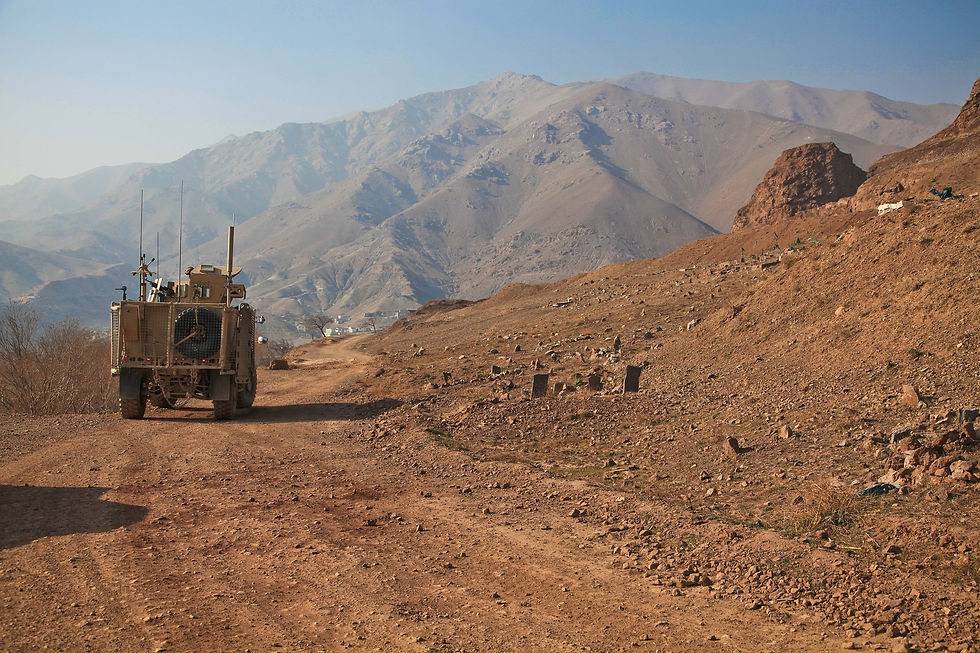Deployment Isn't a Game
- Elisabeth H., Lorelei H., Christine A.
- Oct 22, 2022
- 3 min read
Updated: Oct 27, 2022

A few days ago, the Bloom Team was introduced to this headline: Tom Brady Compares the Football Season to ‘Going Away on Deployment in the Military.’ Let’s just say that our chat blew up, with many outraged teenagers envisioning the prospect of their loved ones staying at high end hotels instead of sleeping in tiny barracks or the desert. As family members to those who have deployed, indignation makes sense for more reasons than one.
First, though, it is necessary to acknowledge Tom Brady’s recent apology. However insensitive it was, humans make mistakes sometimes - everyone does. But, this mistake is a good opportunity to educate.
Also, we should recognize the similarities between military life and NFL life. In both, family members are away for extended time periods and frequent moving can be involved. That kind of stuff isn’t unique to being a military kid - countless other kids are out there in similar situations. In fact, Johnnie Johnson, a former NFL player, has founded the organization Moving Families Initiative, dedicated to serving the approximately 10 million transient kids nationwide.
There are, however, major differences between playing in the NFL and deploying in the military.
For one, playing football doesn’t exactly have a life or death factor. In fact, most of those players have advanced, 24/7 medical assistance. In a combat zone, you don’t. Many family members return home with missing limbs, new aches and pains, skeletal and muscular issues, hearing and sight loss, and more. They aren’t the same. And some, some aren’t fortunate enough to even come home.
Since the terrorist attacks on 9/11, about 7,000 servicemen and women have given their lives to the military. When that happens, the commanding officer has to tell the surviving family that their loved one was KIA (killed in action) or MIA (missing in action). The mental toll it takes on their family and friends, their fellow service members, and their commanding officer is astronomical. Only once, in all of NFL history, has a player died during the game. Yes, they are away from home, but, at the end of the day, they do return.
Injuries do occur in the NFL, but their child isn’t likely crying themselves to sleep, worried about never hearing from them again. Children of the NFL get to see their proud parent play their sport on national television; children of the military can’t even know about their parent’s missions. It doesn’t compare.
The psychological changes that one undergoes in combat zone situations are immense. Those who come back from a deployment are never the same, returning with PTSD, anxiety, depression, survivor’s guilt, and more. Fireworks can set off panic attacks, a dusty day can remind them of the air in Afghanistan. They are harsher, unused to being in the relaxed, friendly, safe environment of home. Behavioral therapists might be visited in attempts to adjust their mindset. Otherwise, they run the risk of emotionally hurting their family. Their minds remain on high alert and their tempers are sometimes short.
Non-military families experience separation, but they never experience deployment. From extensions to piling around a cellphone in the hope of getting a word out, it sucks. But, to add salt to the wounds, you hear comments from those who can’t and don’t understand. Those just hurt; they are diminishing, ruin the image of truth, and belittle the danger of deployments.
We can’t and won’t discount the trials and tribulations the families of NFL players go through - constant away time, moving on the spur of a new contract, and performance stress. Yet we, and many other military teens, agree that being away on a deployment does not compare to being gone playing at an NFL game.
.png)



instead of doing phone calls, my dad would send us letters with his cologne on them to remind us of him